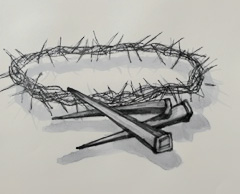“For if you remain silent at this time, relief and deliverance for the Jews will arise from another place, but you and your father’s family will perish. And who knows but that you have come to your royal position for such a time as this?”
Esther 4.14 (NIV)
Esther was a young Hebrew girl who lived in the Persian empire that was ruled by a culture where women were treated as possessions. It’s a story of God’s timing and the heroism of a young woman, who found the courage to break out of a culture of silence and prevent the genocide of her people. True beauty is within, and Esther used her external beauty and position to reveal her true inner beauty, by interceding for her people, in spite of the ugly forces of hatred and evil working in the world.
It all began in Persia with a self aggrandizing King, named Ahasuerus, who initiated a national search for the most beautiful young women of his land, in order to restaff his harem and Esther was one of the many chosen ones.
King Ahasuerus knew nothing of Esther’s Hebrew ethnicity. Her parents were deceased and she was raised by an older cousin, named Mordecai, a devout and pious man. Esther became part of the harem, but gained so much favor with the King, that he quickly promoted her to become his Queen.
The first lesson I take away from the story of Esther is that sometimes God gives us favor with people in authority, but He does it for a particular purpose, which is much higher than for our own self enrichment. Esther didn’t know it yet, but God placed her in the position of being Queen, to save her people from genocide.
According to Persian culture, the queen or any other female was not allowed to approach the king without being summoned by him. Queen Esther, therefore, could only approach the King if he first summoned her.
In the meantime, evil schemes were brewing behind the scene. Haman, a high ranking, close official to the King, detested Mordecai, while not knowing that the queen was related to him. He hated Mordecai and all the Jewish people, since they never bowed down to him as the rest of the Persian population did.
Haman’s bruised ego combined with his hatred, led him to secretly devise a plan to annihilate all the Jewish people from the land. He managed to manipulate the King to believe that the Hebrew people were disloyal subjects, and needed to be removed as a whole group. He not only plotted their genocide, but had special gallows built especially to hang Mordecai on.
Rumors of Haman’s plot leaked out to Mordecai, who went to Esther, and tried persuading her to speak to the King, on behalf of her people. Esther’s first response was to abide by the cultural rules that she cannot approach the King unless he first summons her. Mordecai finally convinced Esther, by asking her, “What if for such a time as this, you were made queen ?“
Sometimes, God expects us to speak up on behalf of others, and there may be only a small window of time to do it. Esther found the courage to put God’s purpose before herself or the traditions of her culture.
Now that she was willing to do the right thing, Esther didn’t know how to approach the King, when she wasn’t permitted to, so she spent three days praying and fasting, asking for God’s help. She came up with a plan, and resolved to give herself to God, saying,” I will go to the King, contrary to the law. If I perish, I perish!”
Esther sent an invitation to both the King and Haman to join her for a dinner party, and the King agreed. After the dinner, Esther found the courage to ask the King for the favor of saving her people from genocide. The King asked who would ever harm her people? Esther then revealed her Hebrew identity and pointed to Haman, as the one who is planning the genocide of her people.
The King granted Esther’s request and Haman’s plot was stopped. Ironically, Haman was hung on the exact gallows that he built for Mordecai.
God hears the prayers of His people, directs our path, and delivers us from evil, when we turn to Him with all our heart. He places His people in the right place at the right time, for His divine purposes. Prayer gives us courage, and Esther’s words prove it, “I will go to the King, contrary to the law. If I perish, I perish!”
Esther put her identity as a believer, above her prestige as a Queen. She used her favor and high position, for a greater purpose. By being in the right place at the right time, she was able to intercede for her people, and save them from genocide.
We don’t need to be royalty to be in a place and position that is unique only to us. God will bring us to the right person at the right time, and grant us favor to intercede for a purpose we might not even know about yet.
We may be the only person who can positively influence certain people. There is someone who may listen to us more than anyone else. God has placed each of us in a particular career, ministry, relationship, neighborhood, or any kind of situation for such a time as this.
Lord, give us courage to speak, pray or intercede for others, showing us how your divine plan has placed us where we are, as an influence for good, “for such a time as this”. Amen
